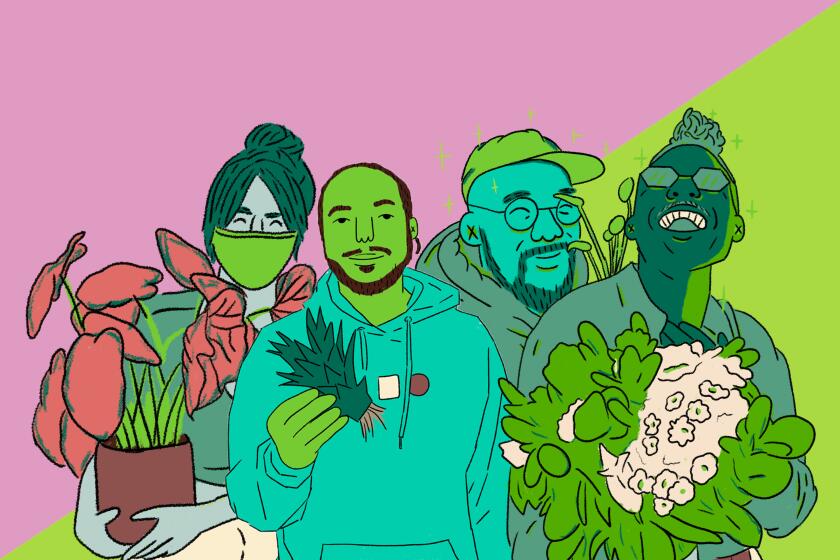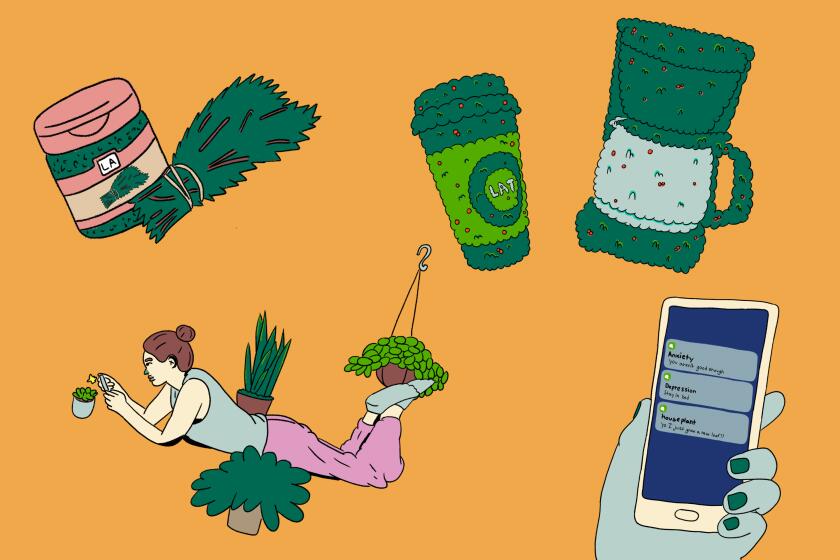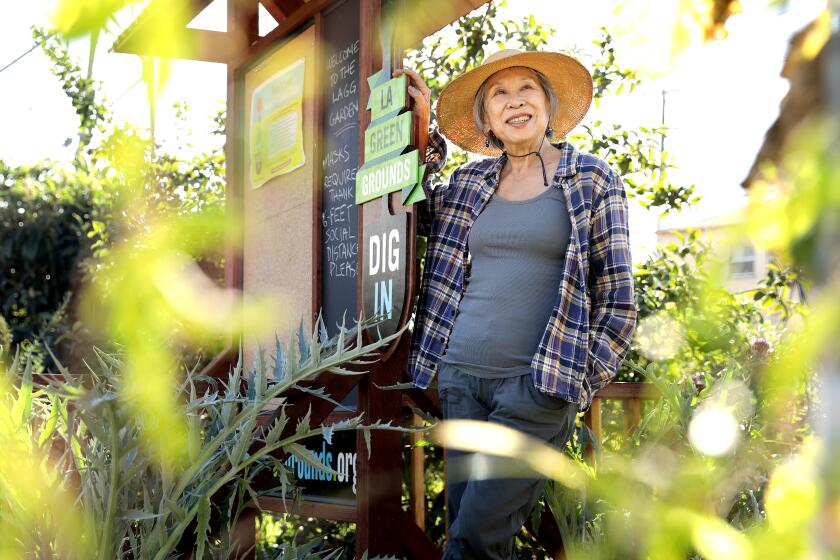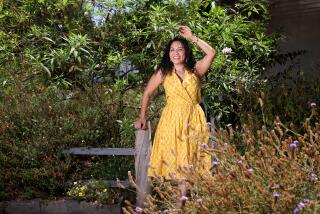She built South Los Angeles’ only enduring nursery 33 years ago on a dusty corner lot
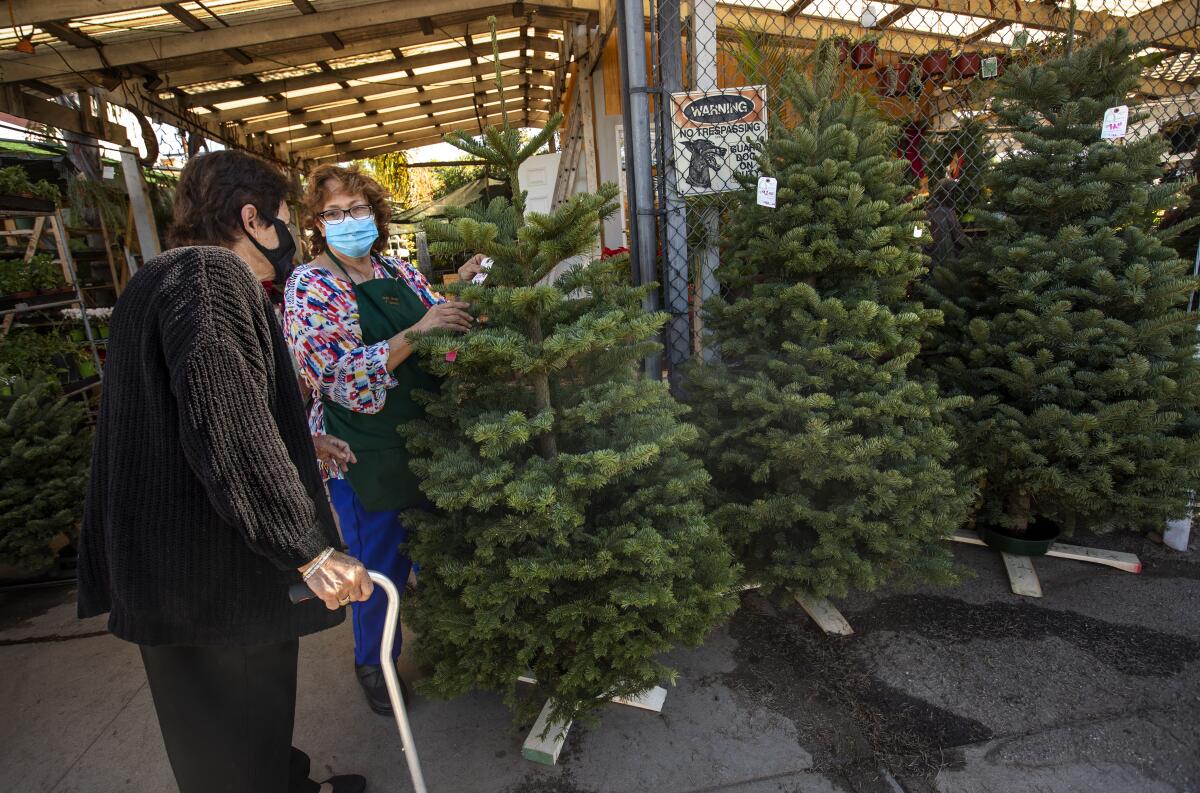
In the lush leafy labyrinth that is Avalon Nursery & Ceramics, it’s easy to forget where you are.
As you walk the back lot, past fenced and watchful dogs, past massive ficus and cactus that have long overgrown their pots, past rows of neatly labeled mango and citrus trees, pots of roses blooming in profusion, fragrant sage and native shrubs and hundreds of other healthy plants with no tags at all, Avalon Nursery feels more like a botanic garden or your grandparents’ beautifully overgrown backyard than a thriving business on a busy corner in South Los Angeles.
“We call this ‘the jungle,’” says Ernesto Lopez, youngest son of the nursery’s founder and owner, Maria Luz Lopez. “I learned to walk here; I kind of grew up here.” He pointed to a quiet shady area near the center of the lot. “When things were slow, my mom gave me baths in a tub right over there.”
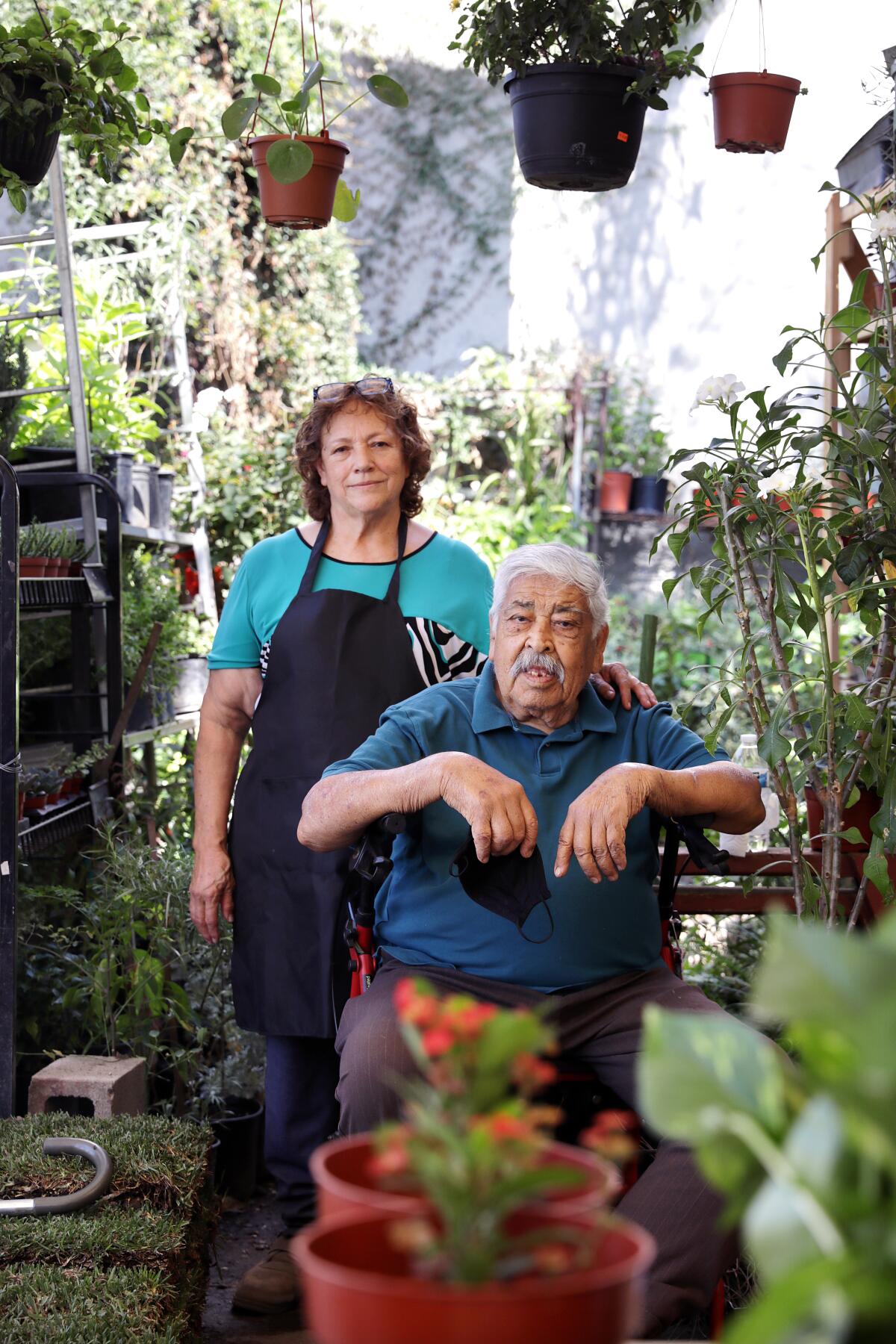
In the jungle, the most prominent noise is birdsong. Out front, though, the nursery is always noisy. Carpenters are enlarging the area around the register, and the traffic on Avalon is a constant roar, but this feels like a happy chaos, with children and family and customers asking about special orders or lugging a houseplant or unlabeled tree to the counter to ask what it is and how much it costs.
As often as not, the plants get left at the counter and then pile up, Maria Lopez said, which is how things get unorganized, because she’s too busy to put them back.
In our Plant PPL series, we interview people of color in the plant world, including plantfluencers, plant stylists, floral artists, enthusiasts, experts and garden store owners.
“My mom always had the saying, ‘Try to have as much inventory as you can, so people won’t leave empty handed,’” Ernesto said, laughing.
Maria Lopez shrugs. Untagged plants don’t concern her. “It just got too hard to put prices on them all,” she said. English is still difficult for her, so Ernesto and her eldest daughter, Mary Ramirez, translate as she talks.
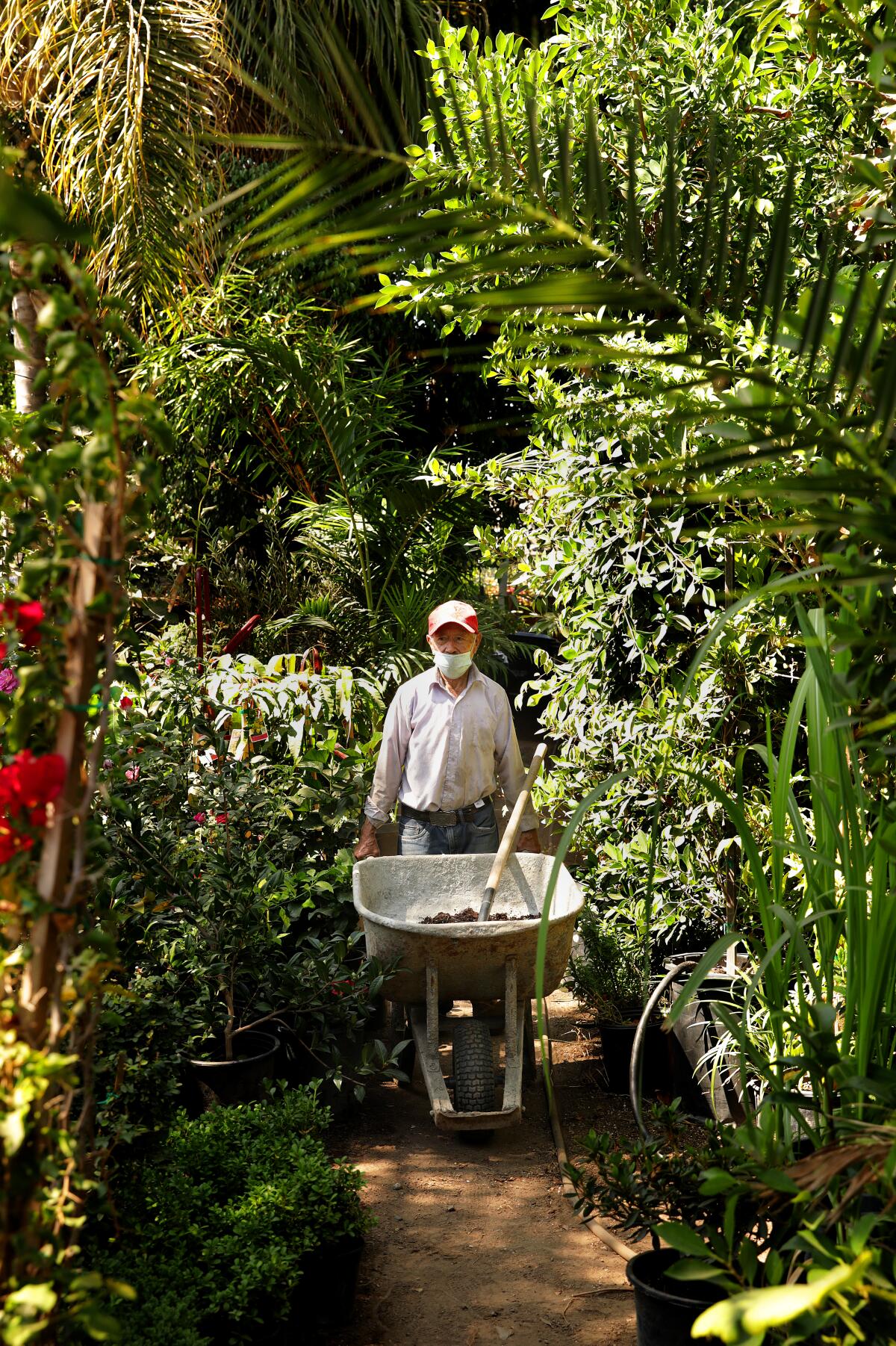
The entrance, along Avalon, is bursting with merchandise — organic soils and plant food, Our Lady of Guadalupe statuary, colorful pots and the “green room,” where most of the houseplants reside. A huge peace lily — at least 3 feet tall and easily as wide, guards the green room entrance. (It’s been there since before Ernesto was born in 1990, and it’s not for sale.)
And somehow, around Dec. 1 each year, Lopez manages to squeeze a small forest of Christmas trees just inside the entrance too.
Once the trees are delivered — noble, Douglas, grand and Nordmann firs — Ernesto trims the trunks and puts them on stands while Maria works with customers and minds the counter. She’s a short, sturdy woman with curly reddish hair and a frequent, distracted smile. She looks far younger than her 67 years, especially when she playfully wraps her arms around the shoulders of her husband, Alfredo. He is a carpenter by trade but hasn’t worked in construction since 2000, when he had a mild stroke. These days he greets customers from his chair at the gate, and no one enters that he doesn’t see.
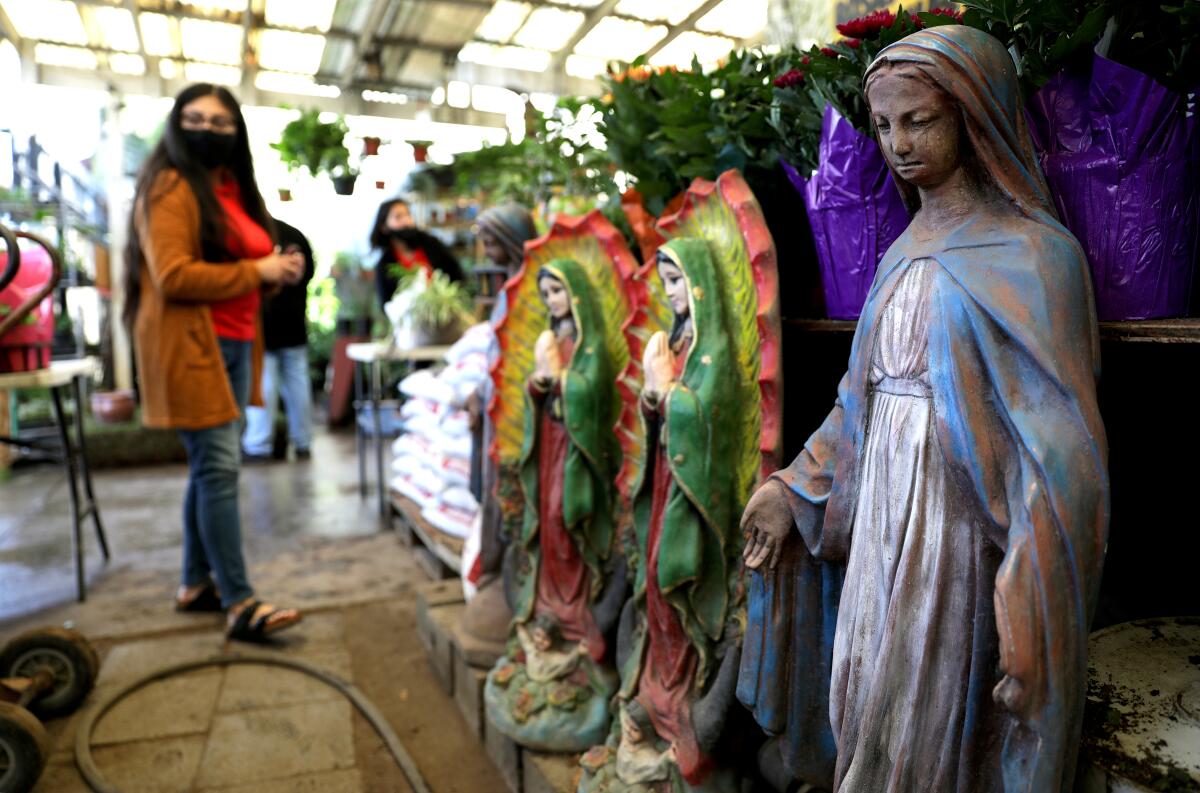
Ernesto, 30, used to spend most of his time at the nursery until he got a gardening job with the city of Los Angeles. Now he comes when he can to help out — and these days more family are dropping by, due in part to stay-at-home orders from their regular jobs — but this is still very much Maria’s nursery, the business she built 33 years ago when she took the advice of the police officer who cited her, yet again, for selling plants on the street.
Here’s a look back at our funniest plant memes of 2020
By 1987, Lopez had four children — Ernesto and his younger sister, Lissette, still hadn’t been born — and worked multiple jobs to help support them. Folding shirts at a laundry, inspecting tags at a sportswear maker and, for extra cash, selling houseplants, cut flowers and ceramic pots from her car.
Even when she lived in Mexico, her oldest children remember her constantly juggling jobs. She and her former husband had a market in Guadalajara, and Lopez did most of the work at the store, said Mary, her oldest daughter. “But she would still make tamales or tacos to sell after hours, to bring in extra cash. She was always hard working.”
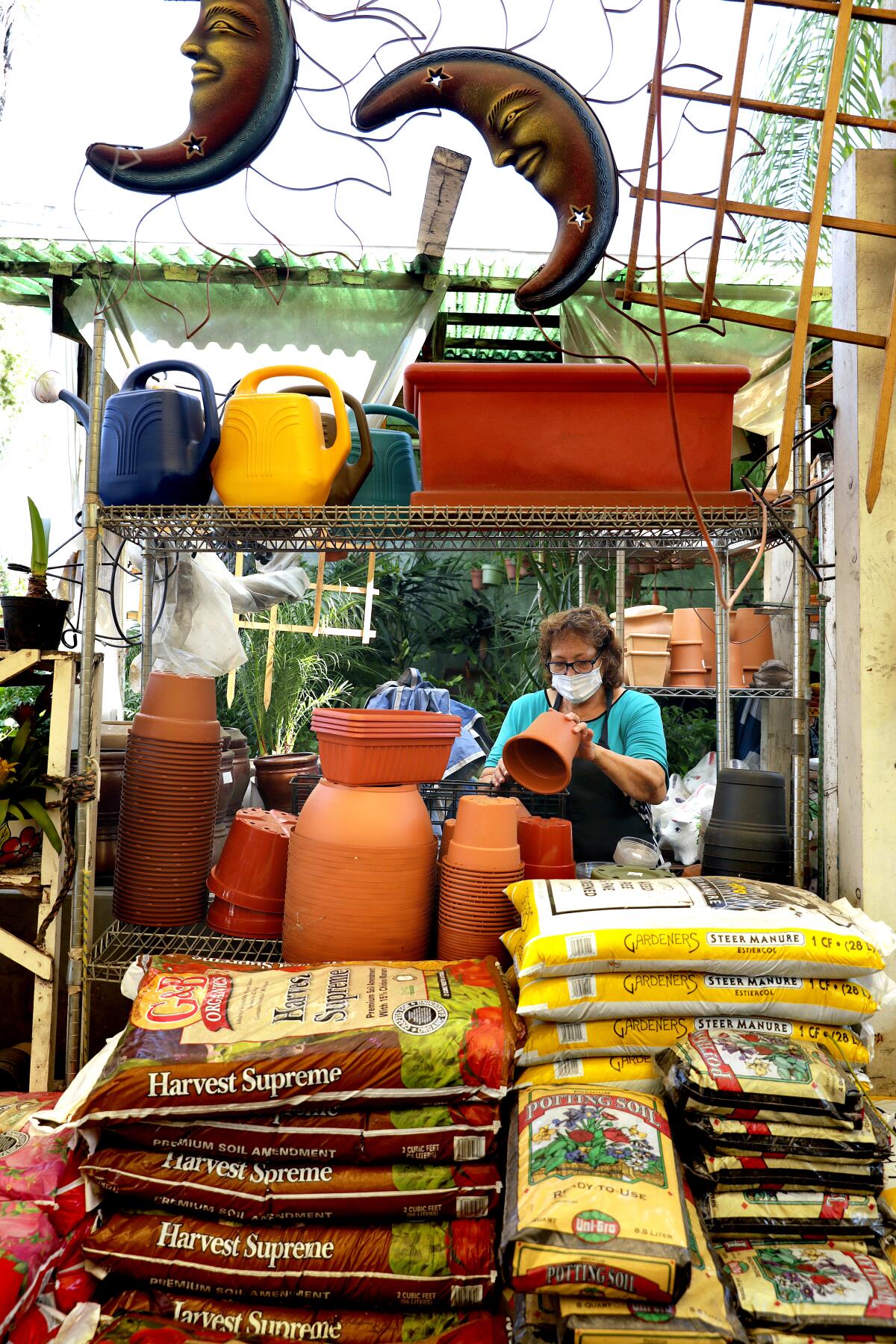
In 1978, Lopez took her three children for a vacation, to see Disneyland and visit her parents and siblings, who had moved to South L.A. nearly two years earlier. She never planned to stay, Lopez said, but her sister enrolled her young children in summer school to help them learn English, and the whole family, including her children, begged her to stay. They knew she and her then-husband were at odds, Mary said, “and we wanted to be with our grandparents. We missed our family.”
Ultimately, Lopez relented. So with just the contents of their suitcases, and support from her family, she found a small house for her and her children and as many jobs as she could muster and went on to obtain U.S. citizenship. Her then-husband joined them later, but their relationship was too frayed and they separated for good.
In South Los Angeles, where it is easier to find fast food than an apple, master gardener Florence Nishida is on a mission to teach the community how to grow their own food. “There’s a lot more than peas and carrots,” Nishida says.
Lopez met Alfredo in 1980 while she was working at the sportswear shop, and they became a couple. The laundry and sportswear jobs got too stressful, she said, and by 1986 selling plants and pots from her car was her main income.
Her sister and mentor, Ofelia Hurtado, had been selling flowers and ferns from a vacant gas station at Firestone Boulevard and Fir Avenue for years and taught Lopez how to get her plants and flowers wholesale. Lopez found a corner at Avalon Boulevard and Florence Avenue, where the owner of a drive-through burger place signed a lease allowing her to park her car on the edge of the lot and display her merchandise.
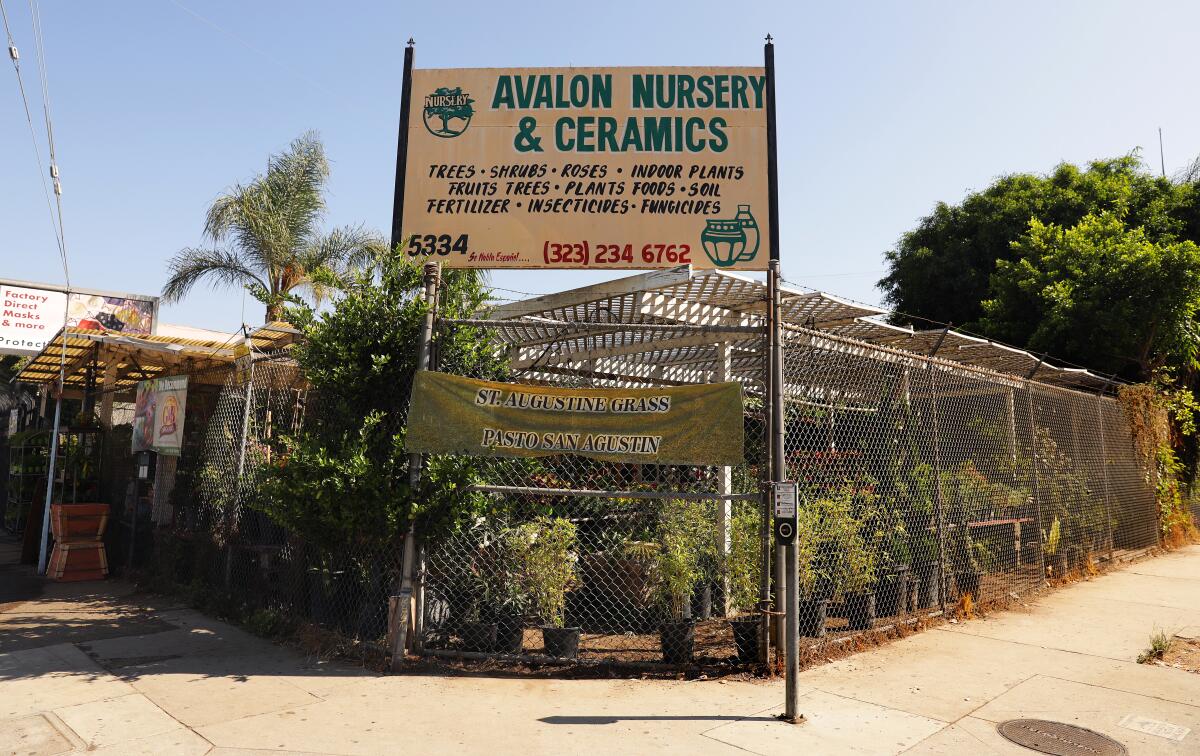
That agreement didn’t mean much to city officials, however, who were trying to discourage sidewalk vendors. Lopez started getting regular citations “for selling illegal stuff on the street.” She went to court partly to fight the fines — $190 a pop — but also because she was indignant about the charge. It made it sound like she was selling cannabis, Lopez said, something she would “never, never, never” do. The only pots she sold were ceramic.
But the fines added up, and the court hearings took precious time, so remembering the officer’s advice to “get a nursery,” she told her teenage children to keep an eye out for a good piece of land. And one day in early 1987, they spied a “For Sale” sign on a vacant lot at the corner of Avalon Boulevard and 54th Street.
It was a narrow, deep lot of hard-packed dirt, and the neighboring business sold used cars, but the price — $35,000 — was within her means, and Lopez, ever mindful of omens, knew the location was right when she saw the street number: 5334.
See, in 1987, Alfredo was 53, born in 1934. And Lopez was 34, born in 1953. The message was obvious, she said, smiling at the wonder of it all. “It was meant to be.”
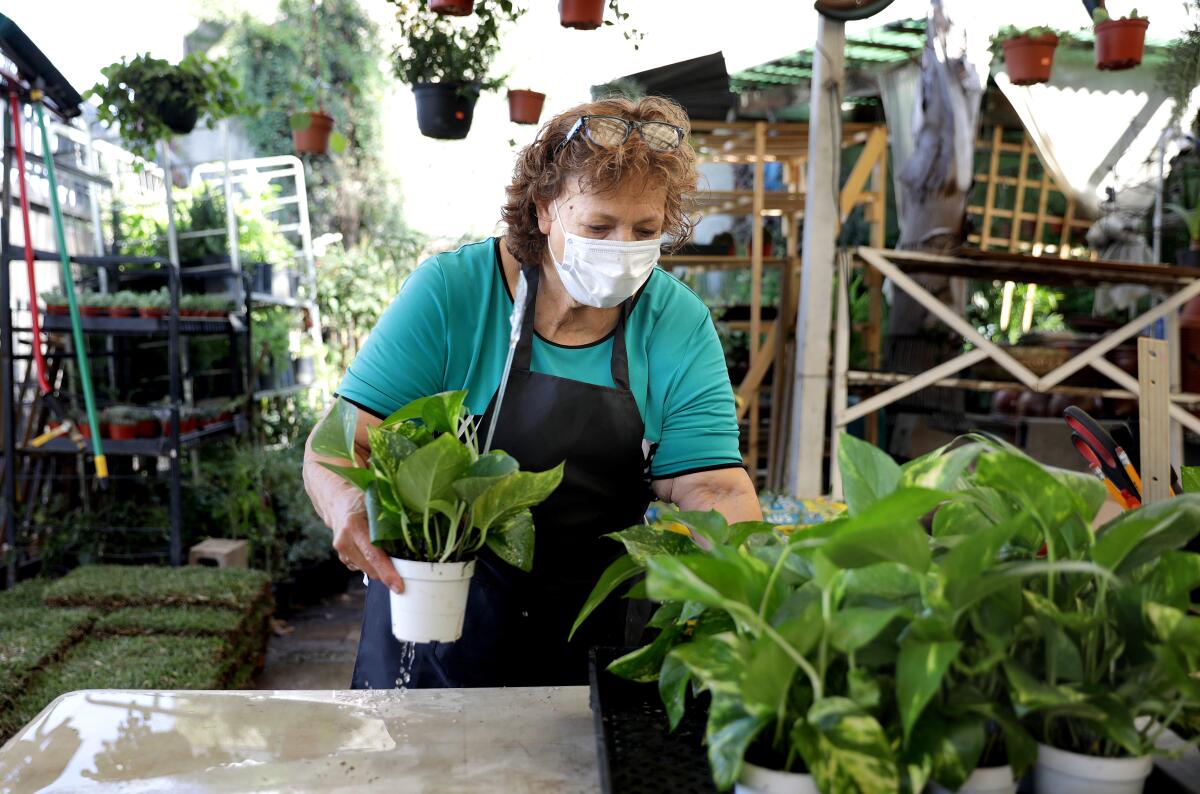
But it wasn’t easy. The property was nothing but dirt. She put down $7,000, got her papers on a Saturday, and on Sunday was selling plants and girly clothes from the trunk of her car under a shade cloth propped up by poles. She still wasn’t entirely sure what she was going to be selling at that corner. Houseplants, cut flowers and pots had been her mainstay, especially on Mother’s Day, when people flocked to buy her large ceramic swans with a pothos plant flowing from its back, but she’d had some success selling clothing too.
So she lined up little girl dresses and shoes next to her plants until Hurtado came and shook her head. “She said, ‘Don’t be dumb. Your clothes are getting dusty! Just sell plants.’”
Trouble was, Lopez didn’t know much about garden plants. She began adding inventory at customer requests — avocado and citrus trees, shrubs for yards — and learned by trial and error how to keep them alive: “If you keep them in a lot of water, they’ll drown,” she said, laughing, “And if you leave them without water, they will dehydrate and die.”
She also sent her oldest children out sleuthing, visiting other nurseries to see what they were selling. And when Ernesto and his older brothers, Jose and Luis, took agriculture classes in college — studies that led to their careers working in landscaping for local governments and LAX , she picked their brains and learned a lot more.
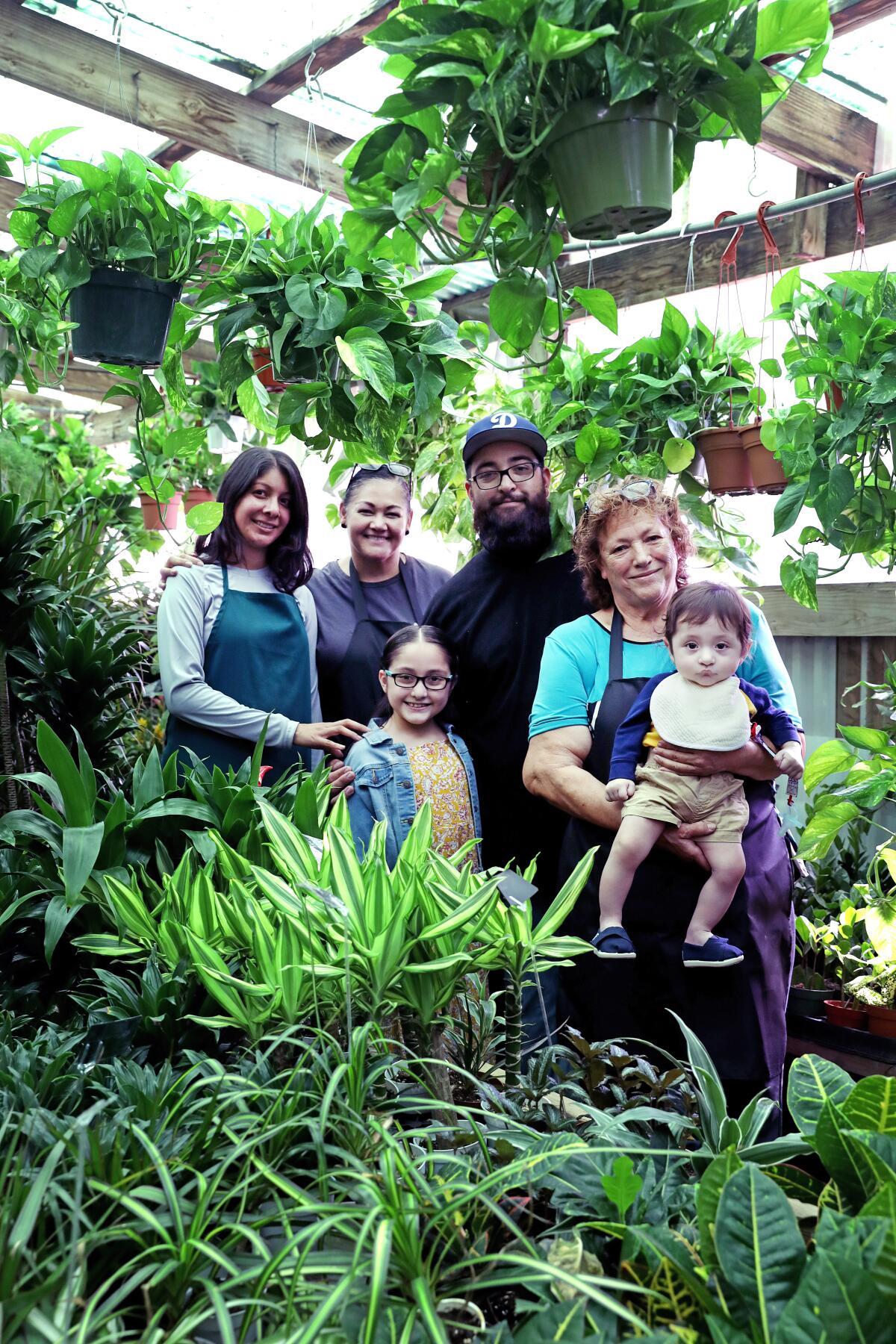
It was Ernesto, for instance, who suggested that she sell small carpets of sod, and customers responded, looking for ways to fill in dirt patches in their yard. And when they saw other nurseries selling Christmas trees, they decided to add that too, but waited until the beginning of December so the trees they brought in from the Northwest were as fresh as possible.
Lopez and Alfredo were lucky enough to find a house just a block from the nursery, and eventually she had three more children: Veronica, Ernesto and Lissette. And when the long skinny lot adjoining her nursery went up for sale, she bought that for $75,000. She owns both lots free and clear now and still keeps the nursery open daily, despite pleas from her children to cut back to six days a week so she can get a little rest.
Lopez has resisted suggestions that she slow down, but some days, she admits, it all feels like too much. The other nurseries in her area closed years ago, but she’s held on and thrived, despite robberies (once at gunpoint), the 1992 uprising that burned nearby businesses, and a temporary closure at the start of coronavirus, until she felt confident she could keep everyone safe with masks and social distancing.
And then, of course, business boomed at the nursery as homebound people started planting gardens and working in their yards.
Lopez often waters at night, after the nursery is closed, and manages most of the inventory herself, but says she is happy these days for the help from her family.
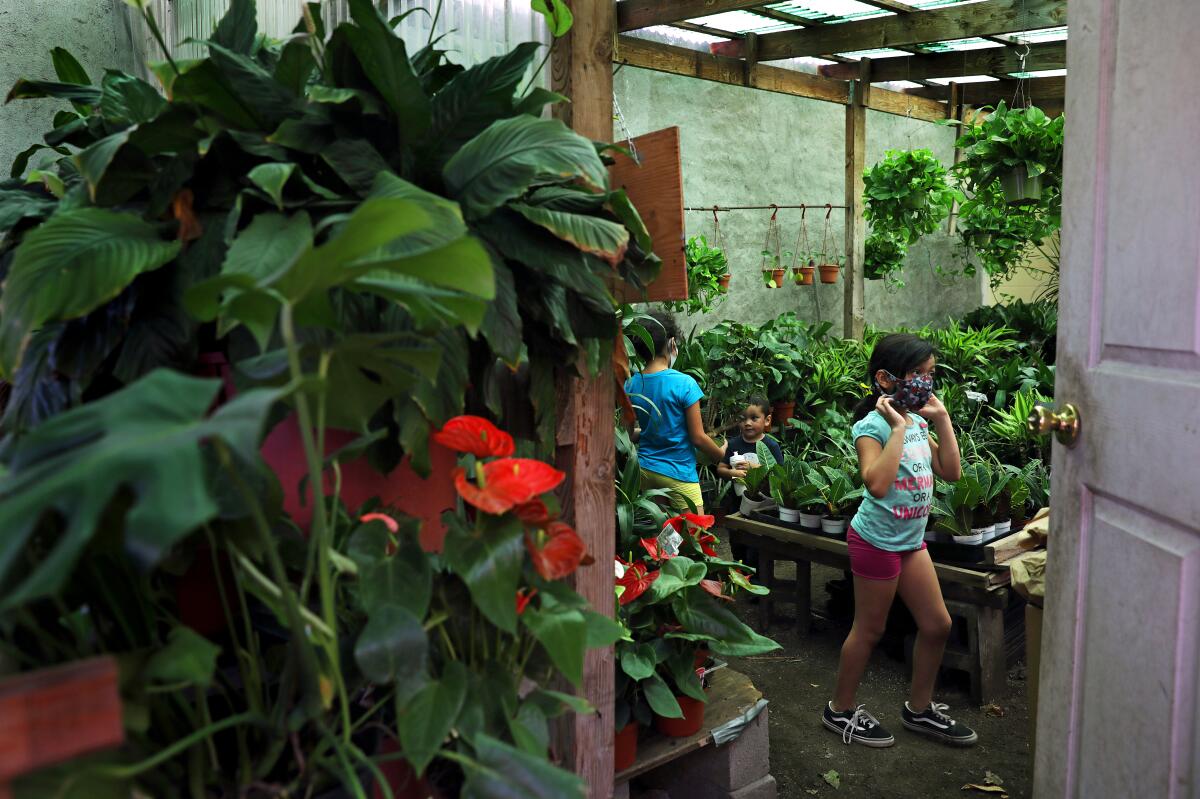
“Things just got away from her,” said her daughter Mary. “We were all busy at our jobs, and then the COVID came and things got slow at the airport, where I work, so I came to see her at the nursery, and that’s when I realized, ‘Oh, my God, mom needs a lot of help.”
Lopez’s granddaughter, Carolyn Ramirez (Mary’s daughter), also has been coming a lot since the pandemic kept her from attending class at Santa Monica College. Avalon didn’t have a digital presence, so Carolyn put the nursery on Instagram @avalonnurseryla and singlehandedly organized the large houseplant room. Lopez is so proud of the results she calls it her favorite part of the store.
Carolyn spent a lot of time in “the jungle” when she was child, coming to play after school. And now Ernesto’s daughter Madeleine, 7, likes to come to play and help where she can. Ernesto’s fiancé, Wendy, used to help regularly too, until their son Ernesto Jr. was born nine months ago.
Someday, Ernesto says, he’d like to run the business full time, but he isn’t holding his breath. Lopez, he says, isn’t letting go, something she confirms pretty readily.
There are times, she says, that she thinks about selling, like after a long and difficult day, but that feeling doesn’t last long. “It’s hard work,” she says, “and I get tired. But it’s a good source of income.”
And it’s also a fixture, in her community and her heart. Selling the business? She shrugs ... Maybe. But selling the jungle, the land that supports it? That’s not really an option, Lopez says. “My great-grandmother told us, ‘Never get rid of your land. It’s the one thing you don’t sell, so it stays for your kids and grandkids.”
More to Read
Sign up for The Wild
We’ll help you find the best places to hike, bike and run, as well as the perfect silent spots for meditation and yoga.
You may occasionally receive promotional content from the Los Angeles Times.
